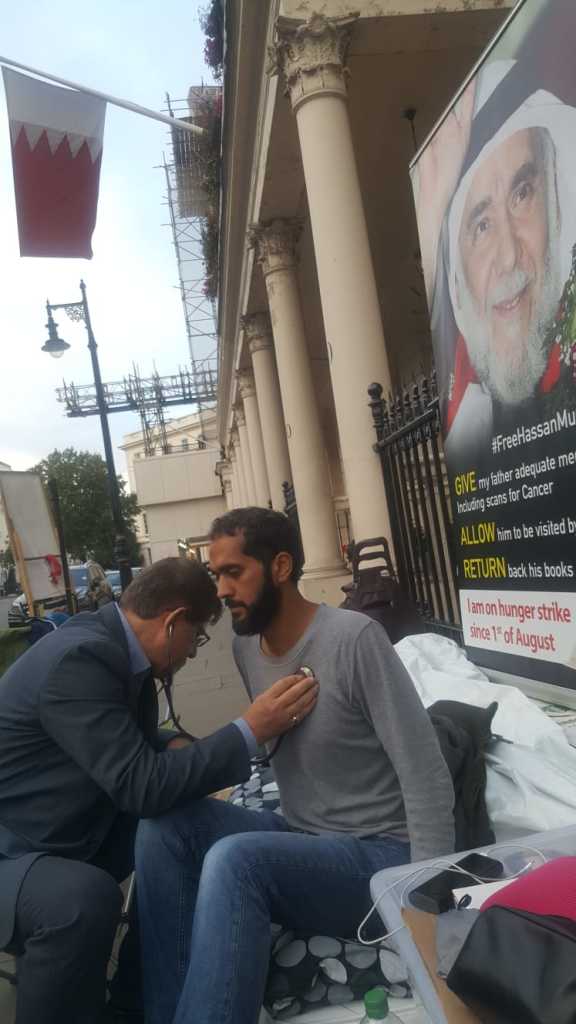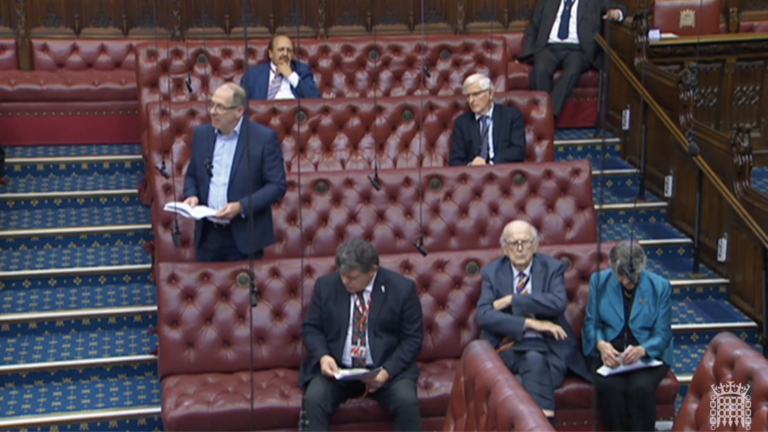12 September 2018 – Today, a medical team of four doctors expressed grave concern for the medical condition of Ali Mushaima, a Bahraini activist on the 43rd day of his hunger strike outside the Bahraini Embassy in London, to demand that his 70-year-old father Hassan Mushaima be granted access to adequate medical care, family visitation and books.
Having visited Ali nearly every day throughout the hunger strike, the doctors are now extremely alarmed for the “marked deterioration in his health and well-being”, and for the “acute consequences of his protest” which with “no doubt” will have “long standing implications”.
Since the beginning of his protest, Ali has lost 16 kg (20% of his total weight), and had been suffering from constant headaches, fatigue, weakness, dizziness, as well as feeling cold. More recently he has started complaining of abdominal pain and increased lethargy. Due to a critical drop in his blood sugar, on 30 August, Ali was admitted to hospital and put on a glucose drip and intravenous saline to rehydrate him. He refused, however, to assume any solid food and a few hours later he was discharged. He returned to the site of his protest the following day.
The doctors “strongly advised” Ali to end his hunger strike, warning him about the great risks for his health if he continues to subject his body to “such stress”. This includes a catabolic state, which is followed by starvation, whereby the body “starts to break down stores of energy… such as glycogen and fats which are essential to proper functioning of the body’s systems”. If this process continues, the doctors said, then the body will become ketogenic, that is it “starts to break itself down to survive”, and vital organs such as kidneys and the liver, may be (if not already) irreversibly damaged.
Reports show how after 40 days without food, “progressive confusion, incoherence, loss of hearing, blindness and bleeding may occur”, as well as arrhythmia and cardiac arrest, which are only “some of the potential physical sequelae of prolonged starvation”.
The combination of these factors greatly concerns the doctors, who warn Ali to immediately stop his hunger strike “before a catastrophic event takes place”.





